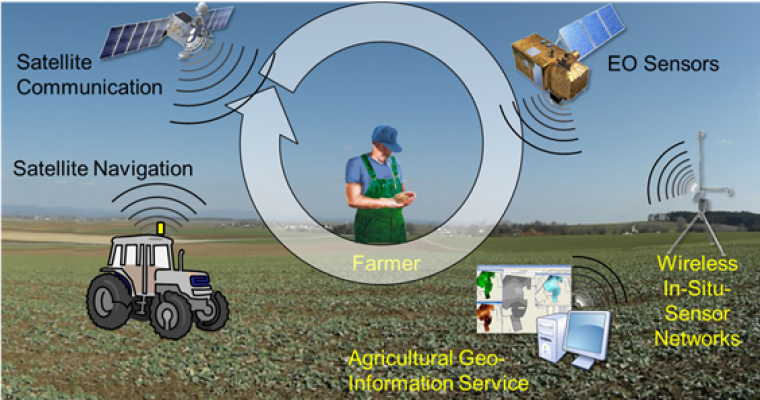Africa’s agricultural sector is the backbone of its economy, employing millions of people and contributing significantly to the continent’s GDP. However, the sector faces numerous challenges, including climate change, soil degradation, and limited access to information, markets, and finance. To address these challenges and improve agricultural productivity, African countries are increasingly turning to Information and Communication Technology (ICT). In this article, we will explore the current state of agricultural ICT in Africa, its benefits, challenges, and opportunities for improvement.
Current State of Agricultural ICT in Africa
Agricultural ICT in Africa has made significant progress in recent years, with many countries investing in digital initiatives to support the sector. Mobile phones, in particular, have become a crucial tool for farmers, providing access to information on weather, markets, and best practices. Many organizations, including governments, NGOs, and private companies, are using ICT to provide extension services, market information, and financial services to farmers.
Benefits of Agricultural ICT in Africa
The benefits of agricultural ICT in Africa are numerous. Some of the most significant advantages include:
- Improved access to information: ICT provides farmers with access to critical information on weather, markets, and best practices, enabling them to make informed decisions.
- Increased efficiency: ICT can help farmers streamline their operations, reduce costs, and improve productivity.
- Enhanced market access: ICT can connect farmers to markets, enabling them to sell their products more efficiently and at better prices.
- Improved decision-making: ICT can provide farmers with data and analytics, enabling them to make more informed decisions about planting, harvesting, and marketing.
- Increased financial inclusion: ICT can provide farmers with access to financial services, enabling them to manage their finances more effectively.
Challenges Facing Agricultural ICT in Africa
Despite the benefits of agricultural ICT in Africa, there are several challenges that need to be addressed. Some of the most significant challenges include:
- Limited infrastructure: Many rural areas in Africa lack the infrastructure needed to support ICT, including reliable internet and mobile networks.
- Limited digital literacy: Many farmers in Africa lack the skills needed to use ICT effectively.
- Limited access to devices: Many farmers in Africa lack access to devices, such as smartphones, needed to access ICT services.
- High costs: ICT services can be expensive, making them inaccessible to many smallholder farmers.
- Limited content: There is a lack of relevant and useful content available to farmers in local languages.
Opportunities for Improving Agricultural ICT in Africa
Despite the challenges, there are many opportunities for improving agricultural ICT in Africa. Some of the most significant opportunities include:
- Mobile technology: Mobile phones are widely used in Africa, and their penetration is expected to continue growing. Mobile technology can be used to provide farmers with access to information, markets, and financial services.
- Digital platforms: Digital platforms can be used to connect farmers to markets, provide extension services, and offer financial services.
- Data analytics: Data analytics can be used to provide farmers with insights into their operations, enabling them to make more informed decisions.
- Artificial intelligence: Artificial intelligence can be used to provide farmers with personalized advice and support.
- Partnerships: Partnerships between governments, NGOs, and private companies can help to improve agricultural ICT in Africa by leveraging resources and expertise.
Examples of Successful Agricultural ICT Initiatives in Africa
There are many successful agricultural ICT initiatives in Africa. Some examples include:
- M-Farm (Kenya): M-Farm is a mobile-based platform that provides farmers with access to market information and allows them to sell their products directly to buyers.
- Esoko (Ghana): Esoko is a digital platform that provides farmers with access to market information, extension services, and financial services.
- FarmDrive (Kenya): FarmDrive is a digital platform that uses data analytics and machine learning to provide farmers with personalized advice and support.
- Agricultural Technology Hub (Nigeria): The Agricultural Technology Hub is a digital platform that provides farmers with access to information, markets, and financial services.
Conclusion
Agricultural ICT has the potential to transform Africa’s agricultural sector, improving productivity, efficiency, and profitability. However, there are several challenges that need to be addressed, including limited infrastructure, digital literacy, and access to devices. By leveraging mobile technology, digital platforms, data analytics, and artificial intelligence, and through partnerships between governments, NGOs, and private companies, African countries can improve agricultural ICT and support the growth of their agricultural sectors.
Recommendations
To improve agricultural ICT in Africa, the following recommendations are made:
- Invest in infrastructure: Governments and private companies should invest in infrastructure, including internet and mobile networks, to support ICT in rural areas.
- Develop digital literacy programs: Governments and NGOs should develop digital literacy programs to train farmers on how to use ICT effectively.
- Increase access to devices: Governments and private companies should work to increase access to devices, such as smartphones, needed to access ICT services.
- Develop relevant content: Governments, NGOs, and private companies should develop relevant and useful content available to farmers in local languages.
- Encourage partnerships: Governments, NGOs, and private companies should work together to leverage resources and expertise to improve agricultural ICT in Africa.
By implementing these recommendations, African countries can improve agricultural ICT and support the growth of their agricultural sectors, improving food security, reducing poverty, and promoting economic development.

